POST-DOCTORAL FELLOWS
 Yoed Kenett
Yoed Kenett
Hebrew University; B.A. & M.A. Cognitive Science, 2007 & 2009
Bar-Ilan University; Ph.D. Neuroscience, 2015
Research Interests: I examine how semantic memory structure enables and constrains high level cognitive processes, such as memory retrieval and creative thinking, in typical and clinical populations (such as persons with autism). To achieve this, I use computational methods to represent semantic memory structure and empirical neurocognitive methods to directly examine these computational findings.
Email: yoedk@sas.upenn.edu
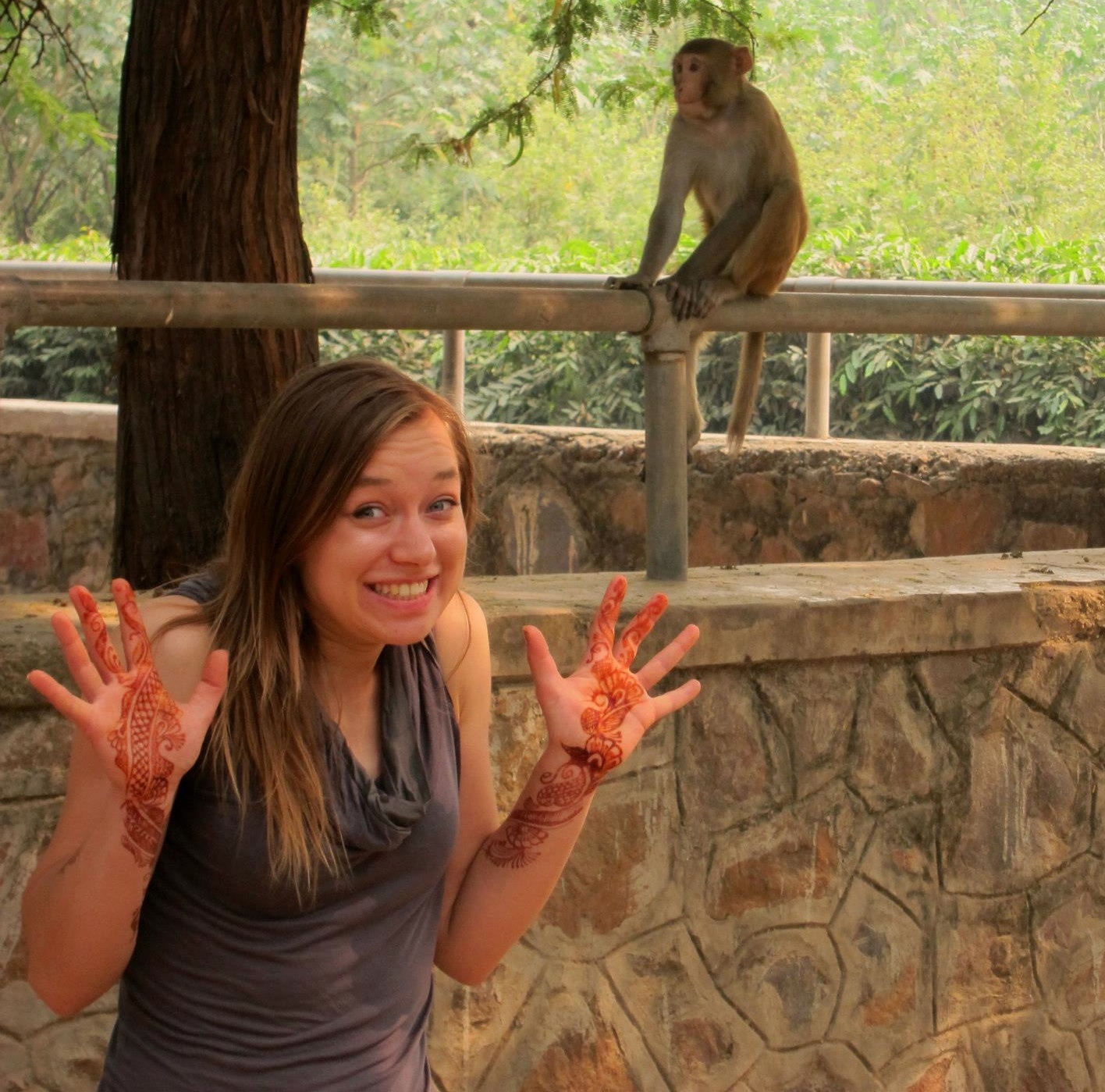 Anna Leshinskaya
Anna Leshinskaya
Carleton University; B.A. Cognitive Science, 2008
Harvard University; Ph.D. Psychology, 2015
Research Interests: I am interested in the acquisition and representation of conceptual knowledge. An important observation is that conceptual knowledge is not an undifferentiated, homogeneous system but is instead organized into components specific to a domain (living, non-living) or attribute type (color, shape, etc). One aspect of my research asks about the factors that lead to such divisions and determine their cortical placement. My most current line of work asks how different kinds of conceptual knowledge are acquired, and to what end they are put to use computationally. Specifically, I hope to account for the acquisition of properties of objects that are not physical qualities (e.g., color or shape) but which denote regularities in their interactions with the world (e.g., the functions of artifacts and psychological properties of animate kinds). This latter kind of property tends to be more abstract than the former; an account of such property learning could thus yield insights into how humans acquire abstract conceptual knowledge more generally.
Email: anna.leshinskaya@gmail.com | Website »
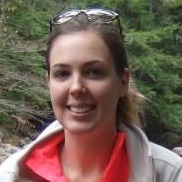 Elisabeth Karuza
Elisabeth Karuza
Georgetown University; B.A. (Honors) Linguistics, 2009
University of Rochester; Ph.D. Brain and Cognitive Sciences, 2014
Research Interests: Broadly speaking, I am interested in how learning, specifically implicit distributional learning, unfolds over time in the human brain. Using a combination of behavioral and functional neuroimaging methods, I aim to better understand not only the types of regularities to which human learners are sensitive, but also how a network of specialized neural substrates works in concert to extract and make use of them. I am particularly interested in how the learning process is influenced by top-down control functions associated with the frontal lobe.
Email: ekaruza@sas.upenn.edu | Website »
 Heath Matheson
Heath Matheson
University of Winnipeg; B.A. (Honors) Psychology, 2006
Dalhousie University; Ph.D. Psychology, 2012
Research Interests: I am interested in sensorimotor or embodied theories of semantic memory. I am using fMRI to characterize the development of embodied representations and their flexible use in different psychological contexts.
Email: heathericmatheson@gmail.com
 John Medaglia
John Medaglia
Drexel University; B.S. Psychology, 2008
Pennsylvania State University; M.S. Clinical Psychology, 2011
Pennsylvania State University; Ph.D. Clinical Psychology, 2014
Research Interests: My research focuses on neuroplasticity and large scale network modeling in functional neuroimaging. I have particular interests in the control of large scale brain networks that support cognition in normalcy and acquired brain injury. Additionally, I am interested in the intersection between working memory, cognitive control, and pattern learning.
Email: johnmedaglia@gmail.com | Website »
 Marc Coutanche
Marc Coutanche
Oxford University; B.A. Experimental Psychology, 2005
University of Pennsylvania; Ph.D. Psychology, 2013
Research Interests: I am interested in how semantic memory is encoded within activity patterns of the brain, associative and relational learning, and the development of multi-voxel pattern analysis approaches for fMRI.
Email: coumarc@psych.upenn.edu | Website »
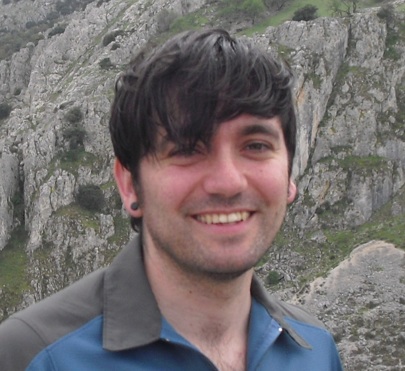 Jorge Valdes Kroff
Jorge Valdes Kroff
University of North Carolina at Chapel Hill; B.A. Linguistics, 2001
University of North Carolina at Chapel Hill; B.A. International Studies, 2001
Pennsylvania State University; Ph.D. Spanish and Language Science, 2012
Research Interests: My research focuses on the comprehension of codeswitching — the fluid alternation of languages in bilingual speech — and how exposure to codeswitching may more generally affect cognitive control processes involved in the mediation of conflicting representations.
Email: jvald@sas.upenn.edu
 Matt Weber
Matt Weber
Amherst College; B.A. Computer Science, B.A. Russian, 2002
Princeton University; Ph.D. Psychology & Neuroscience, 2009
Research Interests:I’m interested in the influence of frontal activity on statistical learning in children and adults. In a past life, I was interested in recovering the structure of natural concepts from brain activity.
Research in Progress: I’m using behavioral testing, connectionist simulations, and transcranial direct current stimulation to examine, respectively, how measures of frontal function and statistical learning are related across the lifespan, what computational factors
might underlie that relationship, and whether it can be modulated in adults by changing the excitability of frontal cortex.
Email: mweb@sas.upenn.edu
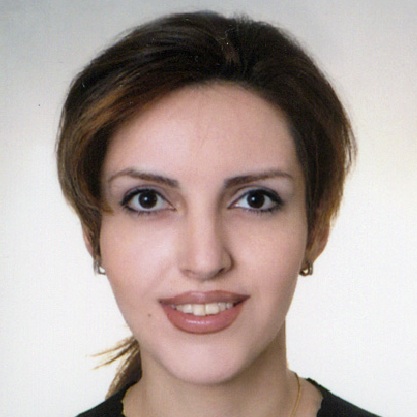 Nazbanou Nozari
Nazbanou Nozari
Tehran University of Medical Sciences; M.D., 2005
University of Illinois at Urbana-Champaign; Ph.D. Cognitive Psychology, 2011
Research Interests: I study people’s ability to process language efficiently, with a strong emphasis on how cognitive control influences verbal communication or tasks requiring verbal processing. Producing fluent meaningful language is heavily dependent on executive abilities, and I use various methods, such as behavioral experimentation, computational modeling, Transcranial Direct Current Stimulation (tDCS), Voxel-based Lesion-Symptom Mapping (VLSM), and recently, eye-tracking to learn the exact nature of these dependencies. I use three populations: healthy younger adults, older adults (to understand the cognitive changes during normal aging), and post-stroke brain-damaged patients (to understand the consequences of damage to the cognitive system). In the future, I hope to use the fruit of this research for developing better methods of learning in neurologically-healthy individuals, as well as re-learning the lost information in brain-damaged patients.
Email: nozari@sas.upenn.edu | Website »
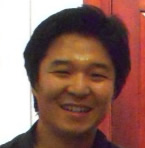 Yune-Sang Lee
Yune-Sang Lee
Yonsei University; B.S. Biology, 2001
Darmouth College; Ph.D. Cognitive Neuroscience, 2010
Research Interests: I am interested in exploring the neural route/basis of percept-to-concept. More specifically, my research has been focused on how the brain integrates modality-specific percepts into the internal brain language of modality-independent concepts. To address the question, I mainly use functional neuroimaging combined with machine-learning techniques. Besides, I’m interested in the ‘cousin’ of language, that is, music processing in the brain and the evolution of music and language of humans.
Email: yslee@sas.upenn.edu | Website »
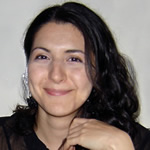 Lila Chrysikou
Lila Chrysikou
Panteion University of Athens Greece; B.A. in Psychology
Temple University; Ph.D. in Cognitive & Experimental Psychology
Research Interests: I am interested in the neural bases of semantic knowledge and goal-oriented action, with emphasis on human problem solving and innovative tool use in everyday tasks.
Research in Progress: My current projects involve behavioral, neuroimaging, transcranial magnetic stimulation, and neuropsychological studies on the flexibility of human semantic knowledge during the generation of common and alternative uses for everyday objects.
Email: evangelg@psych.upenn.edu | Website »
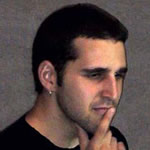 Rob Goldberg
Rob Goldberg
Hofstra University; B.A. in Cognitive Science, 1999
University of Pittsburgh; Ph.D. Center for the Neural Basis of Cognition, 2004
Research Interests: Rob explores how brain processes allow for the intuition of unified, yet flexible, semantic representations that can explain both the fluidity of metaphors and the rigidity of scientific facts. He is interested in the relationship between sensory brain mechanisms and perceptual knowledge of objects, and how language allows for the development and maintenence of abstract semantic knowledge.
Research in Progress: As a conceptual case study, Rob is currently examining the living/non-living distinction from its formation in cognitive development through its decay with brain damage. Using behavioral, computational, and fMRI methods, his present research aims to instantiate this distinction and its developmental trajectory in specific brain mechanisms.
Email: grob@mit.edu
 David Kraemer
David Kraemer
Tufts University; B.S. Psychology, B.A. Drama, 2002
Dartmouth College; Ph.D. in Cognitive Neuroscience, 2007
Research Interests: I am interested in different forms of linguistic and non-linguistic semantic processing. In particular, my work has focused on the role of domain-specific brain regions (visual cortex, auditory cortex, motor planning areas) during the retrieval of perceptual memories.
Research in Progress: A distinction exists between visual and verbal learners that is expressed in both self-report measures and tests of cognitive abilities. My present line of research is focused on exploring how the brain instantiates these individual differences in domain-specific cognitive processing. To achieve this goal, I am conducting studies using fMRI, genotyping, and neuropsychological testing.
Email: dkraemer@psych.upenn.edu | Website
 Gary Lupyan
Gary Lupyan
Cornell University; B.A. Cognitive Science, 2002
Carnegie Mellon University; Ph.D Center for the Neural Basis of Cognition, 2007
Research Interests: How does language modulate and inform other cognitive and perceptual processes? My research has explored the role of language in categorization, memory, and visual perception using behavioral and computational approaches.
Research in Progress: (1) How do task demands and context influence conceptual and perceptual representations? (2) What are the neural mechanisms by which verbal labels influence visual processing? (3) What types of grammars are particularly difficult for adults to learn? How do such developmental learning trajectories relate to neural maturation?
Email: lupyan@wisc.edu
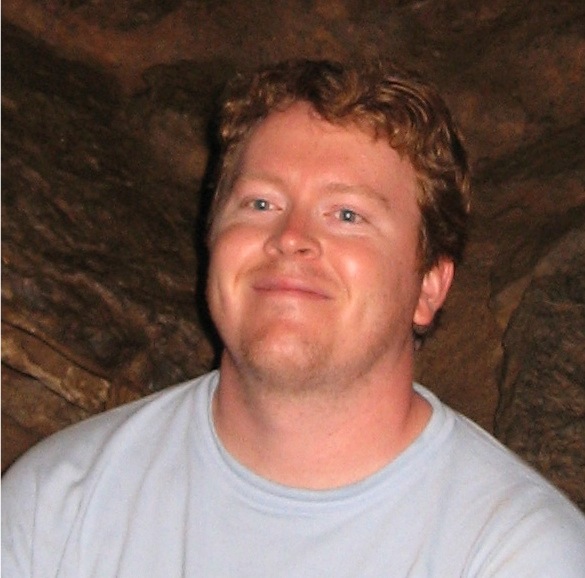 Jared Minkel
Jared Minkel
UC Berkeley; B.A. in Psychology
University of Pennsylvania; Ph.D. in Clinical Psychology
Duke University; Internship in Clinical Psychology
Research Interests: I am interested in sleep and emotion in people with and without psychiatric conditions.
Research in Progress: Clinical outcome data suggest that depressed patients with personality disorders respond relatively well to antidepressant medication, but relatively poorly to cognitive therapy while depressed patients without personality disorders show the opposite relationship. My primary postdoctoral research project seeks to use BOLD and perfusion MRI to find neural correlates differentiating these two groups that may offer insight into their differential treatment responses.
 Dawn Morales
Dawn Morales
U of New Orleans; B.A. in Psychology, 1996
UC San Diego; Ph.D. in Psychology, 2003
Research Interests: Address the inter-relationships between different memory systems and visual perception. I am curious about how information-processing proceeds (e.g., How does memory influence perception? What kinds of variables affect visual encoding and memory retrieval?) as well as how information is represented (how is memory for color represented? What is the nature of rehearsal in visual working memory?)
Research in Progress: Behavioral experiments that characterize the nature of rehearsal and representation in color memory. I am planning some further patient studies in color memory.
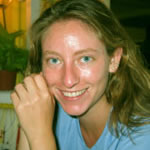 Tatiana Schnur
Tatiana Schnur
University of Virginia; B.A. in Cognitive Science, 1995
Harvard University; Ph.D. in Psychology, 2003
Research Interests: Language production in aphasic and healthy populations. Speech is produced very rapidly, at a rate of two to three words per second, and yet we rarely make mistakes. How we are able to produce words in the correct order with the correct sounds so quickly and flawlessly? In order to address this question, I focus on the selection mechanisms involved in both single- and multi-word production at the lexical level.
Research in Progress: I am looking at aphasic speakers’ pattern of errors during a rapid picture naming paradigm [the paced-cyclic (PC) naming paradigm] as a way to understand how multi-word production breaks down for some aphasic speakers. Additionally, I am looking at whether Broca’s area is recruited during categorically blocked paced-cyclic naming in aphasic and healthy participants using neuroimaging.
Email: tschnur@bcm.edu
 Geeta Shivde
Geeta Shivde
Oberlin College; B.A. in Biopsychology, 1995
U of Oregon; Ph.D. in Psychology, 2001
Current Position: Assistant Professor of Psychology, West Chester University, West Chester, PA.
Email: GShivde@wcupa.edu
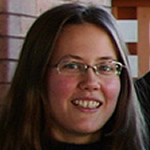 Katharina Spalek
Katharina Spalek
NICI, Radboud University Nijmegen, The Netherlands; Ph.D. in Psychology: 2005
Research Interests: Lexical retrieval during language production. How is semantic, syntactic, and phonological knowledge stored in the mental lexicon and how is it accessed during speaking? I am particularly interested in the retrieval of lexical-syntactic properties, that is, properties needed for the computation of agreement (e.g., in some languages, the form of an adjective depends on the grammatical gender of the noun it specifies). More recently, my interests have also turned to the representation of semantic knowledge in the mental lexicon.
Research in Progress: I have come to the CCN in order to learn how to use fMRI during language production. I am currently planning both a behavioral and an fMRI experiment that will address the question of flexibility in semantic associations. That is, I want to know whether the semantic representation for a given object can change depending on a speaker’s focus.
Email: katharina.spalek@staff.hu-berlin.de
 Malathi Thothathiri
Malathi Thothathiri
Indian Institute of Technology; B.Tech. Engineering
Harvard University; Ph.D. Psychology
Research Interests: Neural basis of language, syntactic processing and acquisition, interaction between language and executive functions in children, healthy adults, and patients with brain damage.
Research in Progress:I am using behavioral and neural methods to study sequencing syntactic processing in aphasic individuals and healthy adults.
Email: mthotha1@swarthmore.edu
 Eiling Yee
Eiling Yee
University of Rochester B.A.
Brown University; Ph.D.
Research Interests: Semantic memory, neural representation of concepts, word recognition, language processing, aphasia, neural basis of language.
Research in Progress: I am currently using eye movements and fMRI to explore: 1) the lexical-semantic processing that occurs as the meaning of a heard word becomes active, and 2) how and where the meanings of concrete objects are represented in the brain.
Email: eiling@psych.upenn.edu | Website »
Graduate Students
 Ariana Familiar
Ariana Familiar
New York University; B.A. Psychology & Philosophy, 2013
Research Interests: I study how and by what properties the brain leverages visual information in behaviors such as recognizing and categorizing objects and perceiving scenes. Using behavioral and neuroimaging methods with computational modeling, I aim to elucidate how certain ‘specialized’ layers of large-scale neural networks interact to give rise to visual perception and memory-related processes.
Email: afam@sas.upenn.edu
 Nathan Tardiff
Nathan Tardiff
Rutgers University; B.A. English, 2004
Harvard Graduate School of Education; Ed.M. Mind, Brain, and Education, 2012
Research Interests: I am interested in the cognitive and neural mechanisms of endogenous flexibility, the ability to adapt one’s behavior in the absence of explicit cues to do so. This ability requires the interaction of learning, decision-making, arousal, and cognitive control processes. Currently, I am studying endogenous flexibility in the domains of reinforcement learning and exploratory behavior. I have utilized a variety of methods in this work, including neuroimaging, pupillometry, noninvasive brain stimulation, genotyping, and computational modeling.
Email: ntardiff@sas.upenn.edu
 Sarah Solomon
Sarah Solomon
University of Delaware; M.A. Cognitive Science, 2012,
B.S. Psychology and Cognitive Science, 2011, B.A. Philosophy, 2011
Research Interests: How are concepts structured to enable the generation of flexible, context-dependent representations? How is conceptual information manipulated in the brain such that an appropriate representation is formed?
Research in Progress: I have explored the flexible manipulation of conceptual representations in object-change, figurative language, and adjective-noun combinations. I am currently exploring the possibility of using network science approaches to model individual concepts, which might enable the quantitative modeling of conceptual flexibility and other phenomena.
Email: sarahsol@sas.upenn.edu
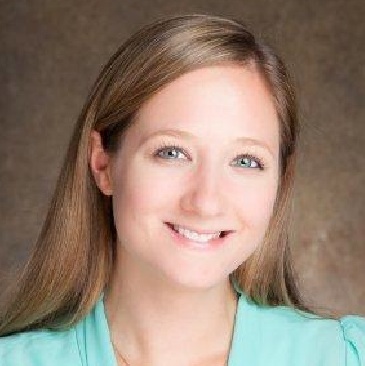 Elizabeth (Lisa) Musz
Elizabeth (Lisa) Musz
Carleton College; B.A. Psychology, 2010
Research Interests: I am interested in using neuroimaging techniques to explore the neural correlates of both semantic and working memory processes. In particular, I want to study flexible and creative thought, as well as the role of the prefrontal cortex in learning and goal-oriented behavior.
Research in Progress: I am currently researching the effects of hypofrontality on visual statistical learning using transcranial direct current simulation. Additionally, I am using fMRI adaptation techniques to inform distributed models of semantic memory for object representations.
Email: muszeliz@sas.upenn.edu | Website »
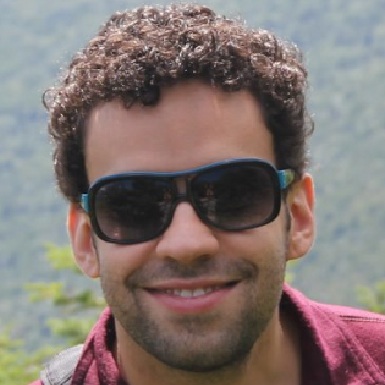 Marcelo Mattar
Marcelo Mattar
Tecnologico de Aeronautica; B.A. Electronic Engineering, 2009
Research Interests: I am interested in the mechanisms, dynamics, and functions of visual adaptation, as well as how it interacts with behavior.
Research in Progress: I use fMRI data to understand how the profile of temporal integration of stimulus history varies across individuals and across brain areas, and how it relates to behavioral measures of perceptual similarity.
Email: mattar@sas.upenn.edu
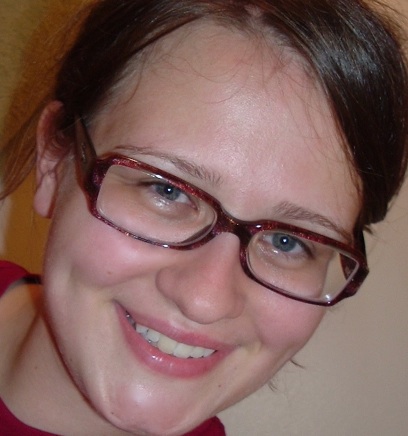 Christine Boylan
Christine Boylan
University of Chicago; B.A. Biology (Neuroscience), B.A. Linguistics, 2008
Research Interests: Neural bases of language, syntax/semantics interface, degree of domain specificity/generality of brain regions implicated in language processing.
Research in Progress: I am currently working on a study of syntactic and semantic prediction effects on word form estimation using fMRI and multivoxel pattern analysis.
Email: ceboylan0@gmail.com
 Nick Hindy
Nick Hindy
Cornell University; B.A., 2007
Research Interests: I am interested in how memories are maintained and how the prefrontal cortex influences their retrieval.
Research in Progress: I am using fMRI and transcranial magnetic stimulation (TMS) to try and better understand memory and memory retrieval.
Email: nhindy@princeton.edu
 Laura H.F. Barde
Laura H.F. Barde
U of California, Irvine; B.A. in Drama, 1992
U of California, Irvine; B.A. in Psychology, 2000
Research Interests: The goal of my research is to understand how humans comprehend spoken language. I am additionally interested in the functional neuroanatomy of this process.
Research in Progress: Currently I am using both standard behavioral and eye tracking methodologies to investigate the relationship between sound and meaning in aphasic comprehension. For example, I want to know more about the kinds of semantic/conceptual knowledge that aphasics access during the spoken word recognition process. When I have a better idea of what I want to know about the language comprehension system, I’ll also use fMRI measures of healthy adult subjects.
Email: Laura.Barde@ucsf.edu
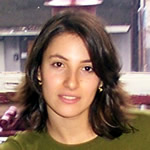 Marina Bedny
Marina Bedny
Johns Hopkins; B.A. in Cognitive Science, 2001
Research Interests: My research interests are in Cognitive Neuroscience, the neural correlates of language, language acquisition and how learning processes affect the structure of neural representation.
Research in Progress: Currently I am exploring the link between noun and verb acquisition and how these are represented in the brain. Another project focuses on the difference between 1st and 2nd language processing. This project focuses on what aspect of 2nd language processing makes its neural correlates different from 1st language processing.
Email: marina.bedny@jhu.edu
 Daniel Drucker
Daniel Drucker
Rutgers U; B.A. in Psychology; concentration in Cognitive Science, 2001
Research Interests: I am broadly interested in the neural bases of object and concept similarity spaces.
Research in Progress: Currently, I am exploring the focal and distributed representations of visual similarity of parameterized shape spaces in human object recognition cortex.
Email: dmd@3e.org
 Nina Hsu
Nina Hsu
Duke University; B.S., 2006
Research Interests: I am interested in memory in general, with an emphasis on the neural mechanisms underlying organization and storage of semantic memory.
Research in Progress: Currently, I am using behavioral and neuroimaging measures to examine the role of visual experience and feature diagnosticity on long-term memory of objects.
 Irene P. Kan
Irene P. Kan
College of Wooster; B.A. in Psychology, 1995
Villanova University; M.S. in Experimental Psychology, 1998
Current Position: Postdoctoral Fellow, Memory Disorders Clinic, Boston.
Email: irene.kan@villanova.edu
 Robyn Oliver
Robyn Oliver
U of San Diego; B.A. in Psychology, 1999
Research Interests: I study the organization of semantic memory and I am particularly interested in retrieval of visual information.
Research in Progress: I am currently running fMRI and behavioral studies that investigate the cognitive and neural processing involved with retrieval of visual attributes. Most of these studies test the claims of the distributed model of semantic memory.
Email: robyn@psych.upenn.edu
 Ranjani Prabhakaran
Ranjani Prabhakaran
Brown University; Sc.B. in Neuroscience, 2004
Research Interests: My research focuses on the neural correlates of working memory, language processing, and the role of prefrontal cortex in executive functions. In particular, I am interested in the extent to which prefrontal cortex functions in a domain-general fashion across verbal and nonverbal domains. I am also interested in genetic influences on individual differences in cognitive control abilities.
Research in Progress: I am currently investigating the extent to which there is correlated variation in individual performance across cognitive control tasks in verbal and nonverbal domains. I also plan to explore the contributions of genetic polymorphisms related to dopamine reuptake to these individual differences in cognitive control abilities.
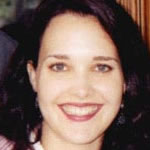 Stacey Schaefer
Stacey Schaefer
U of Wisconsin, Madison; B.S. in Psychology & Zoology, 1996
Research Interests: Identifying the neural circuitry of emotion, in particular, the neural circuitry of emotion regulation and the relation between individual differences in this circuitry’s reactivity and state and trait measures of affective style.
Research in Progress: Currently I am using fMRI to identify the neural circuitry of voluntary emotion regulation, both positive and negative emotion, in normals. In addition, I am using masked stimuli presentations to develop a behavioral paradigm that reliably elicits changes in subjective emotional experience without changes in conscious perception of emotional stimuli, with the eventual goal of taking the paradigm to fMRI to examine the neural correlates of the experience of emotion.
Email: smschaefer2@wisc.edu
RESEARCH SPECIALISTS
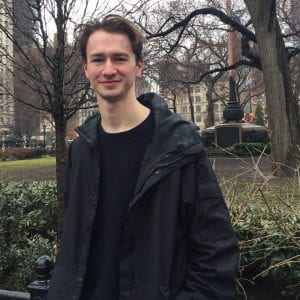 Euan Prentis
Euan Prentis
New York University; B.A. Psychology, 2019
Current Position: Graduate student in Psychology, University of Chicago
 Alice Xia
Alice Xia
Carleton University; M.A. Cognitive Science, 2018
Current Position: Graduate student in Psychology, Brown University
 Michelle Johnson
Michelle Johnson
Swarthmore College; B.A. Neuroscience and Theater, 2016
Current Position: Outreach Program Manager, MindCORE
 Kathryn Graves
Kathryn Graves
Brown University; B.A. Psychology, 2015
Current Position: Graduate student in Neuroscience, Yale University
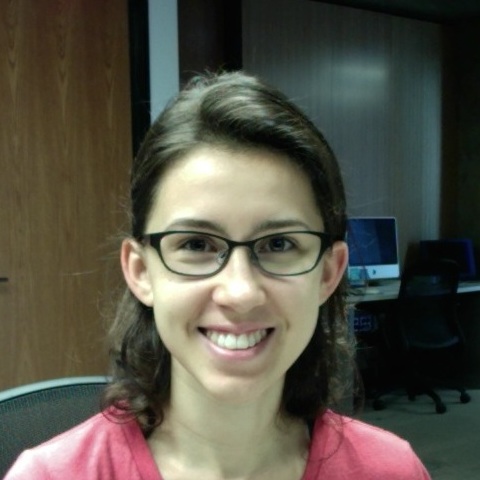 Zuzanna Balewski
Zuzanna Balewski
Massachusetts Institute of Technology; B.S. Brain and Cognitive Sciences, 2014
Current Position: Graduate student in Neuroscience, Berkeley University
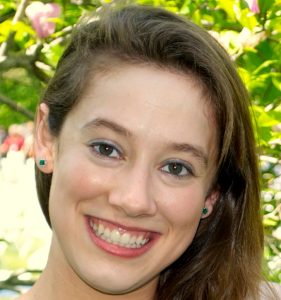 Ruthie Wittenberg
Ruthie Wittenberg
Oberlin College; B.A. Neuroscience & Psychology, 2014
Current Position: Graduate student, University of Pennsylvania
 Emilio Tamez
Emilio Tamez
Rice University; B.A. Statistics, 2014
Email: tamezemilio@gmail.com
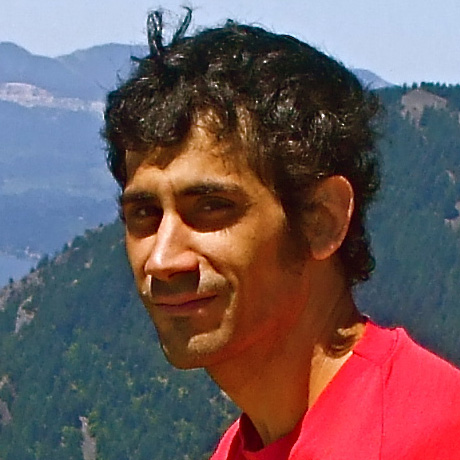 Andrew Persichetti
Andrew Persichetti
Portland State University; B.A. in Philosophy & Psychology, 2010
Current Position: Graduate student in Cognitive Psychology, Emory University
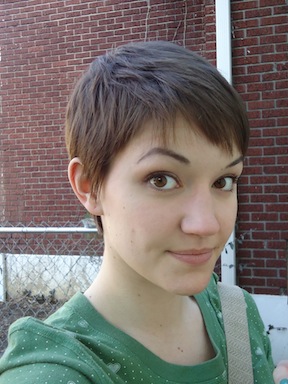 Angel Dyke
Angel Dyke
Indiana University; B.A. in Psychology, 2011
 Melissa Brandon
Melissa Brandon
U of Pittsburgh; B.S. in Neuroscience & Psychology, 2002
Current Position: Graduate student in Cognitive Psychology, University of Wisconsin.
 Jennifer DeSantis
Jennifer DeSantis
Vassar College; B.A. in Psychology, 2008
Current Position: Graduate student in Teaching/Education, Stanford University
 Steven Frankland
Steven Frankland
College of Wooster; B.A. in Psychology & Philosophy, 2007
Current Position: Graduate Student in Psychology, Harvard University.
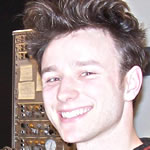 Ben Greene
Ben Greene
Oberlin College; B.A. in Neuroscience, 2006
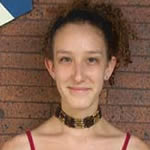 Elizabeth Hirshorn
Elizabeth Hirshorn
Wellesley College; B.S. in Cognitive Science and Spanish, 2003
Current Position: Graduate Student in Psychology, University of Rochester.
 Andrea Houghtling
Andrea Houghtling
Duke University; B.S. in Psychology, 2008
Current Position: Graduate Student in Neuroscience, Rutgers University
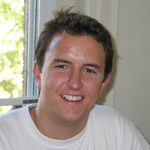 Mark Macdonald
Mark Macdonald
University of York, UK; BSc in Psychology, 2005
 Sam Messing
Sam Messing
Johns Hopkins University; B.A. in Philosophy, 2009
Current Position: Graduate Student in Computer Science, Columbia University
 Jessica D. Pickard
Jessica D. Pickard
SUNY Cortland; B.S. in Psychology, 2001
Current Position: Graduate student in Clinical Child Psychology, University of Southern Mississippi.
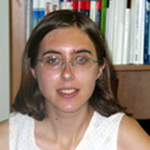 Hannah Snyder
Hannah Snyder
Oberlin College; B.A. in Neuroscience & Psychology, 2004
UNDERGRADUATES
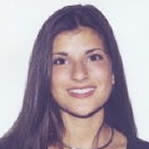 Tammy Brokow
Tammy Brokow
University of Pennsylvania; Independent Study
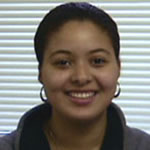 Erica Calderon
Erica Calderon
University of Pennsylvania B.S. in Psychology, 2004
 Zoe Clancy
Zoe Clancy
University of Pennsylvania; Biological Basis of Behavior
Plans After Graduation: Research Assistant for Mark Jung-Beeman at Northwestern University.
Katy Cross
University of Pennsylvania B.A. in Psychology, 2005
Current Position: Research assistant, University of Pennsylvania.
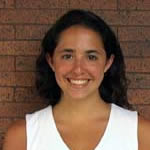 Emily Geiger
Emily Geiger
University of Pennsylvania B.A. in Psychology, 2005
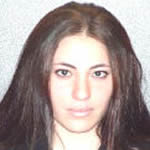 Jen Goldschmied
Jen Goldschmied
University of Pennsylvania; Independent Study
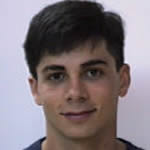 Mike Herzlinger
Mike Herzlinger
University of Pennsylvania; Department of Psychology
Plans After Graduation: Roaming the mean streets of New York City.
 Justin Hulbert
Justin Hulbert
University of Pennsylvania; B.A. in Psychology 2005
Current Position: Graduate student in Cognitive Psychology, University of Oregon.
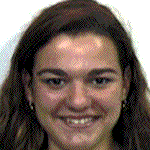 Allison Lapchak
Allison Lapchak
University of Pennsylvania; Department of Psychology
Plans After Graduation: Post-Bac program, Bryn Mawr College.
 Claudia Maennel
Claudia Maennel
Free University of Berlin; Exchange Student
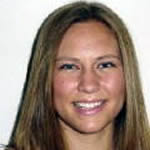 Jessica McConaughy
Jessica McConaughy
University of Pennsylvania; Independent Study
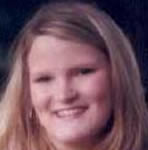 Molly Parsons
Molly Parsons
University of Pennsylvania; Independent Study
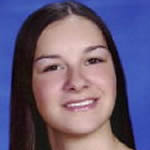 Lauren Rosenberg
Lauren Rosenberg
University of Pennsylvania; B.A. in Cognitive Science, 2005
 Adi Shafir
Adi Shafir
University of Pennsylvania B.A. in Cognitive Science, 2005
 Rebecca Stone
Rebecca Stone
University of Pennsylvania; Graduate Student, Department of Neuroscience.
 Sarah Thompson
Sarah Thompson
University of Pennsylvania; Biological Basis of Behavior
Plans After Graduation: Teach for America.
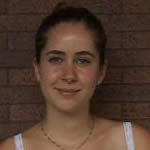 Amanda Van Scoyoc
Amanda Van Scoyoc
University of Pennsylvania; B.A. in Psychology, 2005
 Nathan Witthoft
Nathan Witthoft
University of Pennsylvania; Department of Psychology
Plans after Graduation: Graduate Student, MIT